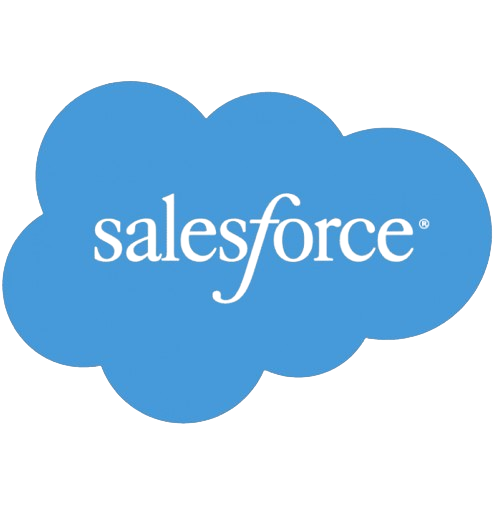Top ERP Trends 2025/2026 [Latest ERP Trends]
Updated on February 14, 2026
The world of Enterprise Resource Planning (ERP) is ever-evolving, shaping the way businesses operate and succeed. It’s crucial to stay ahead of the curve by understanding the latest ERP software solutions and trends. These trends not only drive efficiency but also foster innovation and sustainability in business processes. In this blog, we’ll explore the importance of discovering new ERP trends, the qualities of the best trends for 2025, and the top seven trends to watch out for. Additionally, we’ll delve into the ERP services offered by Cloudconsulting Inc. (CCI) and how they can help your business thrive.
Discover the Best ERP Implementation & Consulting Companies in 2025
Importance of Discovering New ERP Trends
Discovering new ERP trends is vital for any business aiming to stay competitive and efficient. As technology advances, ERP systems become more sophisticated, offering enhanced capabilities that streamline operations, improve decision-making and foster growth. Keeping up with these trends ensures that your business can leverage the latest tools and techniques to optimize processes, reduce costs, and stay ahead in a rapidly changing market. Moreover, understanding new trends can help businesses adapt to regulatory changes, meet customer expectations, and drive sustainable practices.
Related Post: Top CRM Trends in 2025
Qualities of the Best ERP Trends 2025/2026
Certain qualities define the best ERP trends that will shape the future of enterprise resource planning:
Scalability
The best ERP trends are those that offer scalable solutions, allowing businesses to grow and expand without outgrowing their ERP systems. Scalability ensures that the ERP system can handle increased data volumes, additional users, and more complex processes as the business evolves.
Integration
Smooth integration with other systems and technologies is a hallmark of top ERP trends. Integration capabilities enable businesses to create a unified IT environment where data flows smoothly between different applications, enhancing collaboration and efficiency.
Customization
Every business is unique, and the best ERP trends recognize this by offering customization options. These trends allow companies to tailor their ERP systems to meet specific needs and workflows, ensuring a perfect fit for their operational requirements.
User-Friendly Interfaces
Usability is a critical factor in the adoption of ERP systems. The most effective ERP trends prioritize user-friendly interfaces that are intuitive and easy to navigate, reducing the learning curve and increasing user adoption rates.
Security
With the increasing threat of cyberattacks and data breaches, robust security features are a must-have for any ERP trend. The best trends incorporate advanced security measures to protect sensitive data and ensure compliance with industry regulations.
Innovative Technologies
The top ERP trends leverage innovative technologies such as artificial intelligence (AI), blockchain, and the Internet of Things (IoT) to deliver enhanced functionality and new capabilities. These technologies drive automation, improve accuracy, and open up new possibilities for business optimization.
Explore: Top ERP Software for Manufacturing Industry
7 Best ERP Trends in 2025-2026
1. NetSuite
NetSuite is a cloud-based business management software suite that offers a wide range of features, including ERP, financials, CRM (Explore best CRM Software in 2025), and ecommerce. NetSuite is designed for businesses of all sizes but is particularly well-suited for midsize and large enterprises.
Some of NetSuite’s advantages include its being a one-unified business management suite, which can help businesses improve efficiency and streamline operations. NetSuite is also scalable, so it can grow with a business as its needs change. However, it can be expensive and may be too complex for some small businesses.
2. Internet of Things (IoT)
Internet of Things (IoT) refers to everyday objects that are embedded with sensors and software, allowing them to connect to the Internet, collect data, and interact with each other. This interconnected network holds immense potential to transform various industries. For instance, in manufacturing, sensors can monitor equipment health and predict failures before they occur.
Smart agriculture uses IoT to optimize irrigation and track crop growth. Even our homes can become smarter with connected thermostats that adjust the temperature based on our preferences. However, security and data privacy remain challenges as more devices become interconnected.
3. Blockchain Integration
Blockchain is a system of recording information in a way that makes it difficult to change. It is secure and transparent. Businesses can use blockchain to track the movement of goods and materials through a supply chain. This can help to improve efficiency and reduce costs. Blockchain can also be used to store medical records and other sensitive data. However, blockchain is still a new technology, and it is challenging. Businesses need to carefully consider whether or not blockchain is right for them before they invest in it.
4. Sustainability in ERP
As sustainability becomes a priority for businesses worldwide, ERP systems are evolving to support environmentally friendly practices. Modern ERP solutions help companies track and manage their environmental impact, optimize resource usage, and comply with sustainability regulations. This trend is driven by the growing demand for corporate social responsibility and the need to reduce carbon footprints.
5. Cloud ERP
Cloud ERP, or cloud-based Enterprise Resource Planning, is revolutionizing business management. Unlike traditional systems installed on your servers, cloud ERP is delivered over the Internet. This offers anytime, anywhere access and near-infinite scalability, allowing you to adapt to changing needs. Cloud ERP also reduces costs by eliminating upfront hardware expenses and IT maintenance. Instead, you pay a predictable subscription fee for an always up-to-date and secure system.
Cloud ERP is particularly beneficial for mid-sized businesses. It allows them to be more agile by easily integrating with other applications and scaling as they grow. Additionally, cloud ERP provides real-time cash flow visibility, helping businesses optimize their finances. Overall, cloud ERP offers a secure, cost-effective, and scalable solution for businesses of all sizes, making it a top trend in modern business management.
6. Mobile ERP
Mobile ERP is emerging as a powerful trend in business management. This software allows users to access critical business data and applications directly from their smartphones or tablets. This translates to real-time access to information, boosting productivity and responsiveness to customer needs. For instance, sales representatives can access customer data and order history on the go, leading to more personalized service. Additionally, Mobile ERP streamlines supply chains by providing real-time visibility into inventory levels and production processes, allowing for better optimization and efficiency.
7. AI Powering Industrial ERP
Industrial ERP is undergoing a revolution with the power of Artificial Intelligence (AI). AI unlocks a new level of automation, data analysis, and predictive insights within these systems. Machine learning algorithms analyze vast amounts of historical data, enabling features like predictive maintenance that prevents costly downtime and demand forecasting that optimizes inventory and production schedules. AI can also understand natural language, allowing for voice-activated ERP and automated customer service. Finally, computer vision allows AI to analyze visual data for automated quality control and process optimization.
These features translate to significant advantages. AI boosts efficiency by automating tasks, improves decision-making through real-time insights, reduces costs through preventative maintenance and optimized inventory, and enhances customer service with AI-powered chatbots and assistants. However, there are also challenges. Implementing AI can be expensive; its effectiveness depends heavily on data quality, and ethical considerations regarding data bias must be addressed.
ERP Services Offered by CCI
At Cloudconsulting, we offer comprehensive ERP Professional Services that cater to the unique needs of businesses across various industries. Our deep expertise in ERP solutions guarantees smooth integration, optimization, and management of your enterprise resources, driving efficiency and helping you achieve your business goals.
When it comes to ERP Implementation, we excel in deploying effective systems that revolutionize your business processes. From initial assessment to final deployment, our experts ensure a seamless and efficient implementation, minimizing disruptions and maximizing productivity.
Our ERP Consulting services offer expert guidance to optimize your ERP environment. We help you identify opportunities, streamline processes, and achieve strategic goals with customized ERP solutions tailored to your business needs.
With our ERP Integration services, you can create a unified and cohesive IT environment by integrating your existing systems with our ERP solutions. This ensures smooth data flow and enhanced collaboration across your organization.
Contact Now for Professional ERP Solutions
Conclusion
Staying abreast of the latest ERP trends is crucial for any business aiming to thrive in an ever-evolving landscape. The emerging trends in ERP not only drive efficiency but also pave the way for innovation and sustainability in business processes. By understanding and embracing these trends, your business can leverage advanced tools and techniques to optimize operations, reduce costs, and stay ahead of the competition. At Cloudconsulting Inc. (CCI), we are committed to helping you navigate these trends and harness their power to achieve your business goals. With our comprehensive ERP services, you can ensure your enterprise resources are seamlessly integrated, optimized, and managed to drive your business toward success.
FAQs: Latest ERP Trends 2025
Why is it important to keep up with the latest ERP trends?
Keeping up with the latest ERP trends ensures that your business can leverage the most advanced tools and techniques to optimize processes, improve decision-making, and stay competitive in a rapidly changing market. It also helps businesses adapt to regulatory changes, meet customer expectations, and drive sustainable practices.
What are the benefits of integrating AI with ERP systems?
Integrating AI with ERP systems brings a new level of automation, data analysis, and predictive insights. It enables features like predictive maintenance, demand forecasting, and AI-powered customer service, which boost efficiency, reduce costs, and enhance decision-making and customer satisfaction.
How does Cloud ERP differ from traditional ERP systems?
Unlike traditional ERP systems installed on your servers, Cloud ERP is delivered over the Internet. This offers anytime, anywhere access and near-infinite scalability, reducing upfront hardware costs and IT maintenance. It also provides real-time data access, helping businesses optimize their operations and finances.
What industries can benefit from CCI’s ERP services?
CCI’s ERP services cater to a wide range of industries, including manufacturing, healthcare, retail, finance, and the public sector. Our solutions are tailored to meet the specific needs of each industry, enhancing efficiency, streamlining operations, and driving growth.
How can CCI help my business with ERP implementation?
At CCI, we excel in deploying effective ERP systems that revolutionize your business processes. From initial assessment to final deployment, our experts ensure a seamless and efficient implementation, minimizing disruptions and maximizing productivity. We also offer ongoing support to ensure your ERP system continues to operate efficiently.





